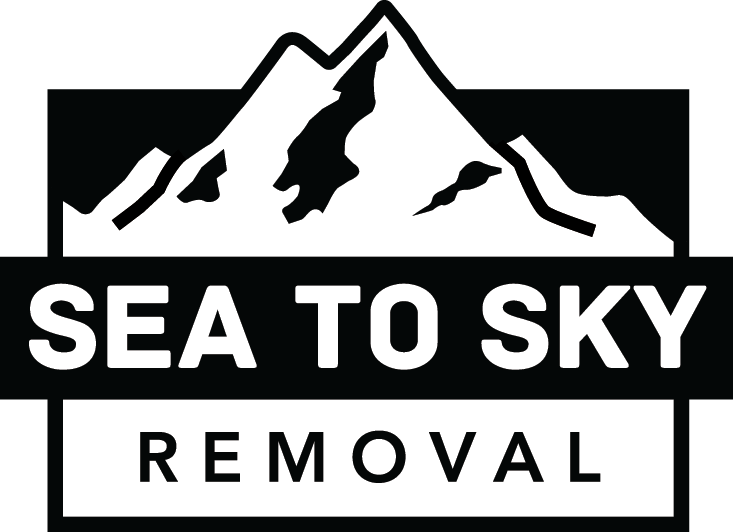We recently partnered up with The Future of Howe Sound Society who is committed to the conservation and stewardship of Howe Sound for the benefit of current and future generations. They recently coordinated a large scale clean up of marine debris throughout the Howe Sound. Stewards filled up many truck loads of debris following the punishing winter storm events this winter. Local residents took to the water and the shorelines with boats, bags and nets, many on their own and in teams via Howe Sound Clean Up Report
A pile of marine debris; tires embedded with styrofoam, metal and wood, pressure treated wood, metal and plastic.
Another pile of marine Debris; more tires embedded with styrofoam, metal, bags of plastics, rope and tarps.
At Sea to Sky Removal, we believe it is our responsibility to support organizations that rehabilitate wild animals who have experienced habitat disruption, climate change education for children, and lastly, organizations remediating and protecting coastal ecosystems. Helping this amazing organization dispose these items responsibly was a perfect fit.
As per our Volunteer Service Policy we have implemented company-wide volunteer days which are paid. We mandated that twelve hours per year, per worker, will be dedicated to our team volunteer activities in support of causes that affects our community and our planet.
The 2 two loads we hauled away included soft plastics, hard plastic, buckets of metal, LOTS of styrofoam (some clean and some dirty) as well as general garbage which included; dirty foam, pressure treated wood staircases, old tarps.
Lastly, 13 tires were embedded in styrofoam, metal and wood were successfully recycled but the process of making a "tire raft or float" should be considered illegal as styrofoam breaks up in the ocean and this is basically polluting it.
Polystyrene foam presents unique management issues because of its lightweight nature, floatability, and likelihood to be blown from disposal sites even when disposed of properly. When polystyrene hits the the ocean, it breaks down into smaller, non- biodegradable pieces that are ingested by marine life and other wildlife thus harming or killing them via Sea Sick Fish
As a result of the impacts on marine pollution and adverse effect to marine wildlife, several coastal cities across the United States, have banned the use of polystyrene food packaging altogether. We feel British Columbia and the rest of Canada should follow suit.
Tire recycling, keeping as much as we can out of our local landfills one load at a time.



